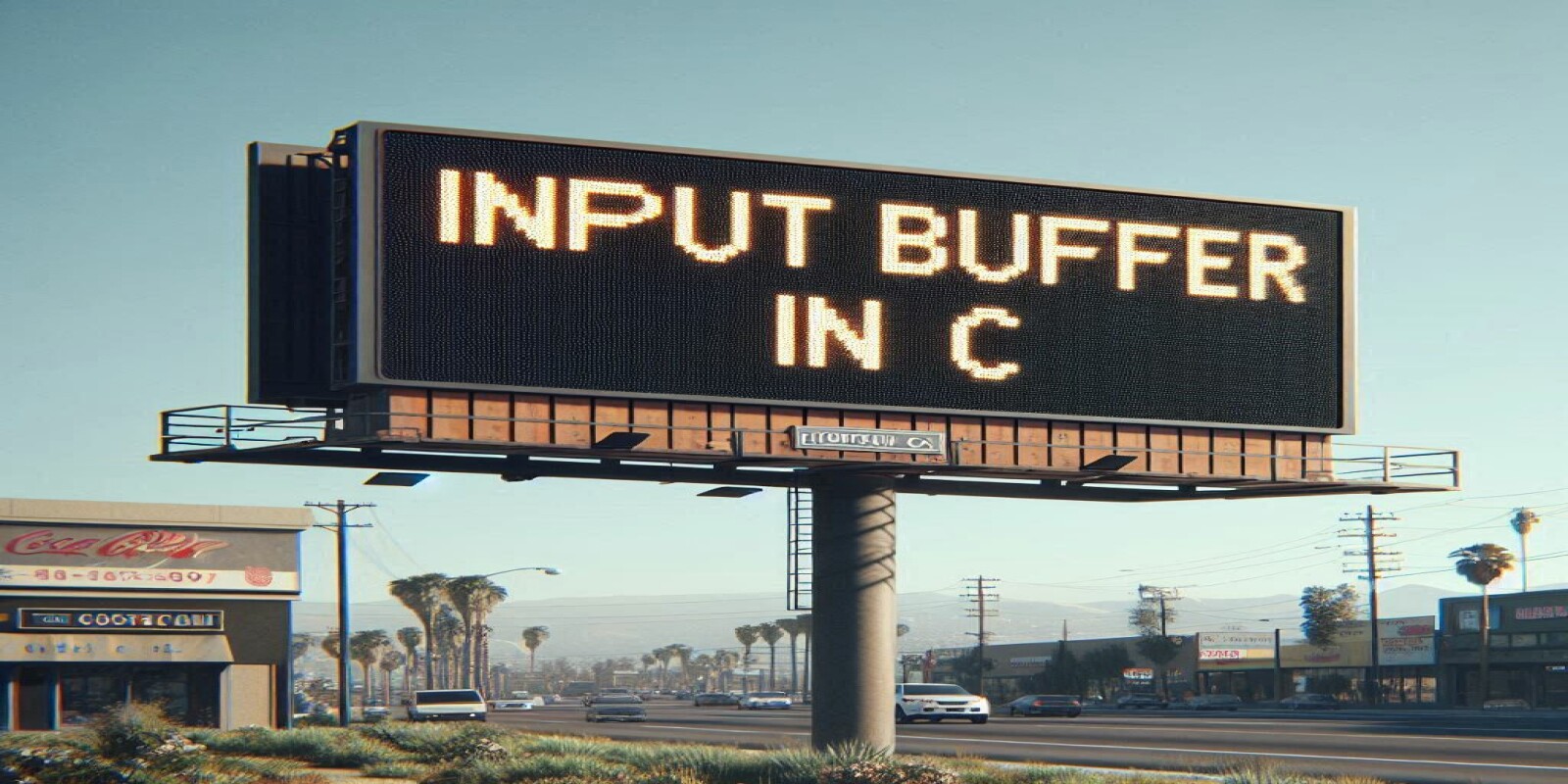Input Buffer in C
 Asem Hamid
Asem Hamid
When using scanf to read input in C, the function reads the input up to the first whitespace character, which is usually a newline character '\n'. When reading a char immediately after reading other types (such as int or float), the leftover newline character from the previous input can cause issues. The scanf for the char will read this newline instead of waiting for a new character input. This is why clearing the input buffer is essential.
Clearing the Input Buffer
When the user inputs an integer or a floating-point number and presses Enter, the Enter key generates a newline character ('\n'). This newline character remains in the input buffer. If you do not clear the input buffer before reading a character, the scanf for charVar will read this leftover newline instead of waiting for a new character input.
To clear Input Buffer :
while (fgetchar() != '\n');
ensures that all characters up to and including the newline are removed from the buffer, so the next input operation starts with a clean buffer.
Example
Here's an example with clearing the Input Buffer :
#include <stdio.h>
int main() {
int integerVar;
float floatVar;
char charVar;
// Input for integer
printf("Enter an Integer: ");
scanf("%d", &integerVar);
// Input for float
printf("Enter a floating point value: ");
scanf("%f", &floatVar);
// Clear the input buffer
while (fgetchar() != '\n');
// Input for char
printf("Enter a Character: ");
scanf("%c", &charVar);
// Print the values
printf("The integer value: %d\n", integerVar);
printf("The floating point value: %f\n", floatVar);
printf("The character value: %c\n", charVar);
return 0;
}
The output will be :
Enter an Integer: 42
Enter a floating point value: 3.14
Enter a Character: A
The integer value: 42
The floating point value: 3.140000
The character value: A
Here's an example without clearing the Input Buffer :
#include <stdio.h>
int main() {
int integerVar;
float floatVar;
char charVar;
// Input for integer
printf("Enter an Integer: ");
scanf("%d", &integerVar);
// Input for float
printf("Enter a floating point value: ");
scanf("%f", &floatVar);
// Input for char
printf("Enter a Character: ");
scanf("%c", &charVar);
// Print the values
printf("The integer value: %d\n", integerVar);
printf("The floating point value: %f\n", floatVar);
printf("The character value: %c\n", charVar);
return 0;
}
The output will be :
Enter an Integer: 10
Enter a floating point value: 3.14
Enter a Character: The integer value: 10
The floating point value: 3.140000
The character value:
Why Clearing the Input Buffer is Necessary
Without clearing the input buffer, the program would not correctly wait for a character input after reading the integer and float. Instead, it would immediately read the leftover newline character, leading to incorrect or unexpected behavior.
By including the buffer clearing step, you ensure that each input operation works as intended, providing a better user experience and avoiding common pitfalls in C input handling.
Practical Use
Clearing the input buffer is a common practice in C programming, especially when dealing with mixed input types. This technique ensures that your programs handle user input correctly and robustly, avoiding potential bugs and unexpected behaviors related to leftover characters in the input buffer.
Subscribe to my newsletter
Read articles from Asem Hamid directly inside your inbox. Subscribe to the newsletter, and don't miss out.
Written by
